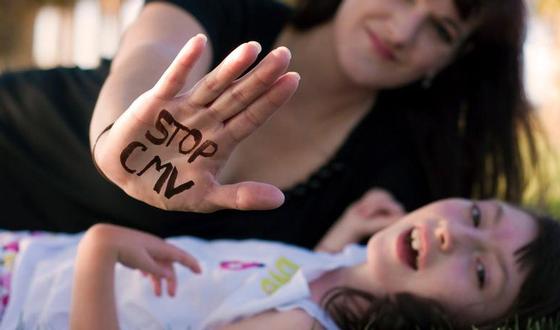Cytomegalovirus, otherwise known as CMV, is a common herpes virus that can affect anyone and can spread through any bodily fluids, including breastmilk from mother to child.If you get infected, the virus will stay in your body for life. However, at most time it remains dormant as long as you are healthy. But for active infections, there is no vaccine available, although it is being studied and researched. Even so, there are several CMV treatments to slower the production of this virus and alleviate your symptoms.

How Do I Know If I Have CMV?
Most people affected by CMV may have no signs or symptoms and never know they have this disease. Others, usually the very old, very young, those with lowered immunities, pregnant women, those who recently have organ transplants and patients with cancer, could suffer the following symptoms:
- Fever
- Sore throat
- Fatigue
- Low appetite
- Difficulty swallowing
- Pneumonia
- Blurred vision and/or blindness
- Enlarged lymph nodes
- Achy muscles
- Diarrhea
- Liver inflammation
- Numbing of the legs
- Seizures
- Coma
Newborns may have different signs and symptoms. In addition to the previously stated, jaundice, other skin rash or discoloration, low birth weight may occur to babies. Affected babies may also be born with an enlarged liver or an enlarged spleen.
If a patient has the above mentioned signs or symptoms,doctors will test your blood to detect the rise in specific antibodies or sample your blood, saliva, or urine to culture. Make sure to call your doctor, if CMV infection is suspected.
The Long-Term Outlook of CMV Infection
Healthy patients can recover fromCytomegalovirus infections with no complications; however, once a patient has CMV, they will always have the virus and there is no cure. Most infants will recover without any complications. But there is a 20% chance that infants found with the disease will suffer permanent hearing damage and developmental disabilities.
CMV Treatments for You
Taking antiviral medicationsisthe only possible Cytomegalovirus treatment Besides, this treatment varies depending on patients'abilities of handling medications and their current health conditions.
Cytomegalovirus is a virus and the body usually works to fight off symptoms. So in many cases treatment is not necessary. Many of the medications that are given are only administered when absolutely necessary because for a normally healthy patient, the potential risks of treatments may outweigh the benefits.
1. Ganciclovir
It, otherwise known as Cytovene, was the first ever approved antiviral medication for Cytomegalovirus. It is still the first drug choice in CMV treatment. This medication is administered intravenously, which is especially used in those patients who have bone marrow transplants or organ transplants.
Ways Ganciclovir helps CMV patients are as follows:
- Slow the growth of the virus
- Control retinitis, an infection which may cause blindness
- Decrease risk of blindness
- Prevent infection from spreading to different areas within the patient’s body
- May be used to prevent CMV in chemotherapy treatment
Side effects of ganciclovir may include:
- Bone marrow function decrease
- Blood cell (both red and white) decrease
- Inability to fight infection
- Bleeding issues
- Anemia
- Decreased sperm count
- Carcinogenic, at risk of causing cancer
- Hearing loss
2. Valganciclovir
It, also known as Valcyte, is taken orally. Valganciclovir works as well as Ganciclovir and is an effective CMV treatment option in non-severe cases. This drug is often used to aid in the prevention of CMV infection.
Once valganciclovir is taken, it actually changes and becomes Ganciclovir in the body, which works in the same way as Ganciclovir. Therefore, it may have the same side effects.
3. Foscarnet
Foscarnet, or Foscavir, is added to CMV treatment when a patient cannot handle or is resistant to Ganciclovir or Valganciclovir. This drug, however, only helps treat eye infection caused by CMV.Foscarnet has its own potential side effects and serious complications.
- Can cause kidney function to decrease
- May cause seizures
- May deplete minerals and electrolytes from the body
4. CMV Immune Globulin
It is a medication given along with Ganciclovir to prevent further infection because it contains special antibodies that are needed in CMV treatment. High risk patients are given this FDA-approved additional medication to prevent potential risk of CMV treatment.
5. Cidofovir
It, also known as Vistide, is used as a last result for those patients who could not handle, or are resistant to other medications listed above. Cidofovir is mainly used in patients with immunodeficiencies, such as HIV (Human Immunodeficiency Virus) and AIDS (Acquired Immune Deficiency Syndrome).
This drug is a last choice for CMV treatment because it is very likely to make the body unable to fight infections and can be extremely toxic to the kidneys. Serious and potential fatal kidney diseases may happen.
How to Prevent CMV
As CMV is so common and symptoms are rarely shown, the virus itself is very hard to prevent. An infected person who does not know their own condition may spread the disease to others innocently. Although the virus is very difficult to prevent, there are steps can be taken to reduce the risk of infections.
- Correct hand-washing: This is always an important task, especially when a person with CMV may come in contact with small children, including indirect contact through diapers, toys, vomit, etc.
- Avoid sharing personal stuff:Using your own utensils and consuming your own food and beverages. Sharing these items may potentially spread the germs to others by bodily fluids and cause infection.
- Avoid kissing.
- Clean all areasthat bodily fluids may come in contact with, especially with children such as toys, tables, chairs, etc.
- Always use a condom during sexual contact.